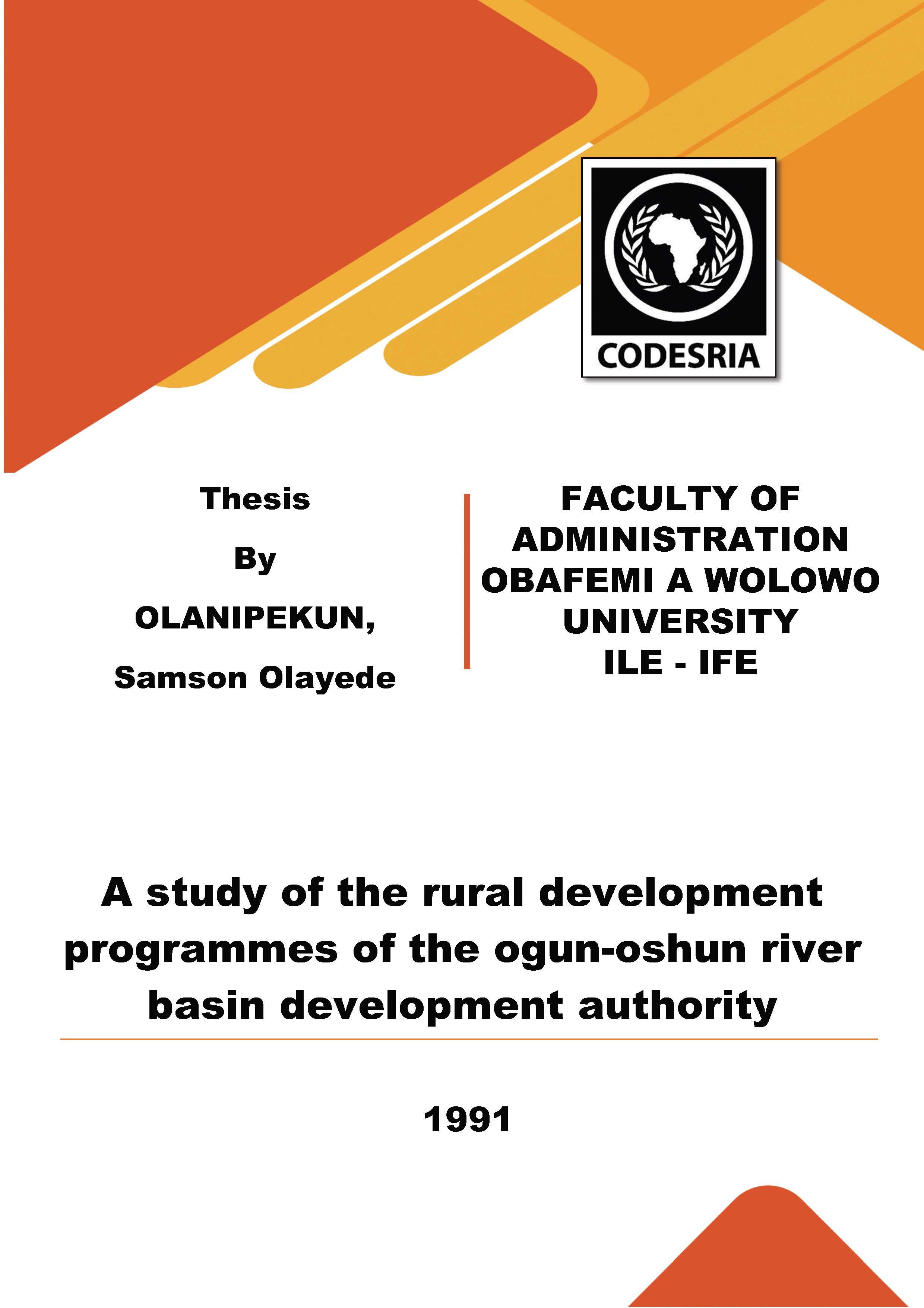A study of the rural development programmes of the ogun-oshun river basin development authority
Keywords:
rural development programmes, basin, authoritySynopsis
This work appraised the impact of State intervention in the management of rural development programmes through the institution of River Basin Development Authorities with particular reference to Ogun-Oshun River Basin Development Authority (0-0RBDA) which covers Lagos, Oyo and Ogun' States. The work examined the extent to which the Authority was a~le to improve the socio-economic énvironment of the rural communities through its programmes and services. Such programmes included agriculture improvement schemes and water resources development activities. Furthermore, in view of the transfer of its agricultural production activities to other agencies like the Directorate of Goods, Roads and Rural Infrstructure (DFRRI) , this study explored the range of functions left for OORBDA.
In contrast to the high level of success associated with the River Basin 8trategy in some countries such ~s the famous Tennessee Valley Authority (TVA) in the United States of America (USA), the achievements recorded by the OORBDA fell below expectation. This low performance level could be explained in terms of the peculiar problems confronting the River Basin Authority. The problems, included government policy reversa! and those of inadequacy of funds and technological expertise
which the River Basin Authority would require for effective performance.
The methodology adopted is impact study with a focus on an appraisal of the stated goals of the organisation. Preliminary data on the authority activities were gathered from its headquarters. This provided background information which stimulated
further investigations. A questionnaire was administered on management and project staff of the Authority. They weie also interviewed on issues relating to the successes and failures of the programmes of the Authority. Another questionnaire was used to ferret out information from 2,850 inhabitants of project area. This figure included 1,040 or 62% of the 1,653 participating farmers and 1.,810 other heneficiaries of the Authority's programmes.
The study discovered that the Federal government had reviewed its involvement in the sustenance" of high - cost i~rigation projects. This resulted in the existing array of uncompleted projects in 0-0RBDA's jurisdiction. Furthermore, the study showed
that the Authority could not provide rural infrastructures to any significant extent as it was not fully equipped to perform that role. 0-0RBDA recorded greater success in its agricultural production activities (now expunged from itij.schedule) more than it did in the provision of good roads, housing, electricity or health care delivery. This was due to the inadequacy of resources available toit.
A maJor implication of the findings is that;bORBDA cannot be totally relieved of participating in agricultural production activities as it now provides irrigation water. Besides, it is important that the Authority relates with the farmers to enable the latter accept its role and consequently patronise it. This patronage would in fact make the 0-0RBDA viable and be less dependent on the Federal government's financial support.
Downloads






